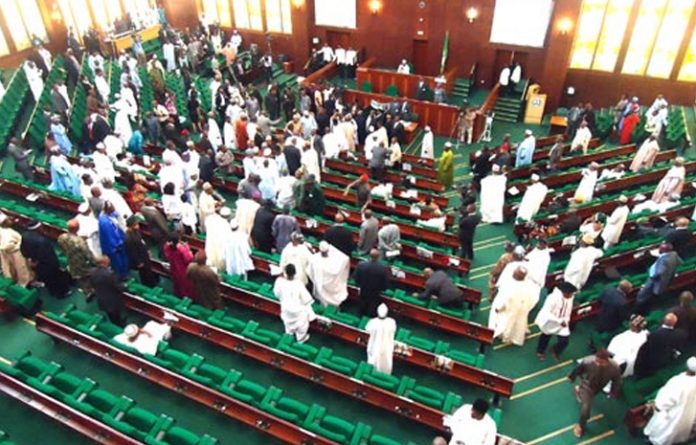As Nigerians continue to lament over the skyrocketing debt overhang for the country which stood at N44.06 trillion ($101.91 billion) in the third quarter of 2022 (Q3’22), representing a 2.85 percent increase over the N42.84 trillion recorded in Q2’22, the House of Representatives on Tuesday approved the request by the President to secure an additional N1 trillion loan from the Central Bank of Nigeria (CBN) to fund the 2022 supplementary budget.
The National Bureau of Statistics (NBS) in its Nigerian domestic and foreign debt Q3 2022 report, noted that Nigeria’s public debt stock, which includes external and domestic debt, rose from N42.84 trillion or $103.31 billion in the second quarter of 2022 to N44.06 trillion or $101.91 billion in the third quarter of the same year.
The data showed the debt figure comprised the debt stock of the federal government, the 36 state governments and the Federal Capital Territory.
The report said external debt stood at N17.14 trillion or $39.66 billion while domestic debt was N26.91 trillion in the quarter under review.
It, however, noted that the share of external debt to total public debt stood at 38.91 per cent in Q3 2022, while domestic debt was recorded at 61.08 per cent.
On state profile analysis, NBS said Lagos recorded the highest domestic debt in the period with N877.03 billion, followed by Delta with N272.61 billion and Ogun with N241.78 billion.
“The lowest debt was recorded in Jigawa with N44.40 billion, followed by Kebbi and Katsina with N60.13 billion and N62.37 billion respectively,” it said.
In recent weeks, there have been heated debates on the sustainability of Nigeria’s debt amid shrinking revenue and mounting loans from the Central Bank of Nigeria ( CBN) in the form of Ways and Means
Last month the Director General of the Debt Management Office (DMO) Patience Oniha, said that the next administration will inherit a public debt of N77 trillion if the N22.7 trillion loans from the Central Bank of Nigeria (CBN) are securitised.
President Muhammadu Buhari had asked the National Assembly to restructure the CBN loan to save the nation an additional cost of N1.8 trillion in interest on the N22.7 trillion.
On Tuesday, the House of Representatives suspended the request to securitize the N22.7 trillion Ways and Means loans pending more details from the Executive, but it however approved the request by the President to secure an additional N1 trillion loan from the Central Bank of Nigeria (CBN) to fund the 2022 supplementary budget.
House Committees on Finance, Banking and Currency, and Aids, Loans and Debts Management jointly presented a report recommending the approval of the restructuring of N1 trillion additional Ways and Means advances for implementation of the 2022 Supplementary Appropriations Act as passed by the National Assembly.


